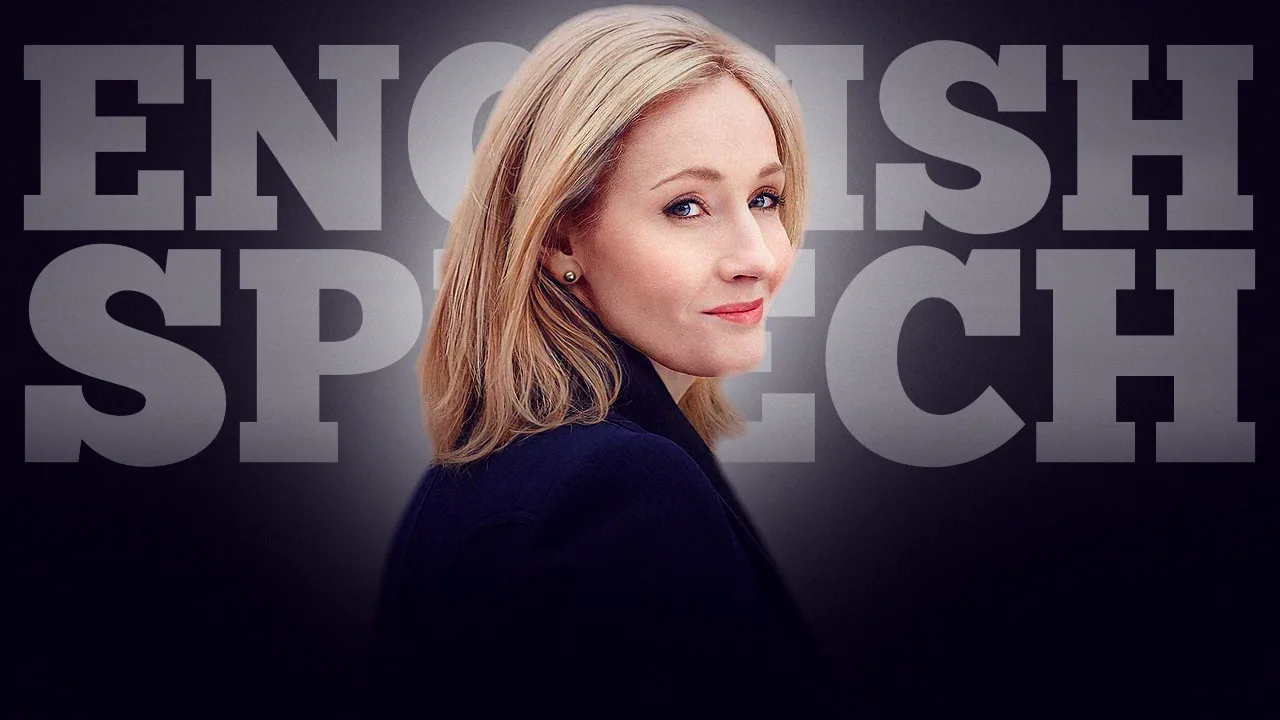Learn English with Ayrton Senna. Join us as we revisit a legendary moment in Formula 1 history with Ayrton Senna at the 1991 AUTOSPORT Awards. In this insightful interview, Senna shares his motivations, the pressures of racing, and his unwavering commitment to his sport. Discover how Senna’s dedication and passion led him to become the youngest three-time world champion, and hear his thoughts on future challenges and his profound respect for past legends like Fangio. Don’t miss hearing from one of the greatest drivers in Formula 1 history and understanding what drove him to his spectacular achievements.
Donwload available for Premium Subscribers
PDF Full Transcript
Explore every word with our concise PDF transcripts.
Audio Version
Immerse in speeches with clear, downloadable audios.
English Lesson
Enhance English skills with interactive speech lessons.
⚬ Free 30-day trial

”I am not designed to come second or third. I am designed to win.
Download available
for Plus Members
PDF Transcript
Access the full speech in an
easy-to-read PDF format.
Audio Version
Listen and download clear,
high-quality MP3 recordings.
English Lesson
Includes vocabulary
and grammar practice.
Offer ends in:
Offer ended.
Transcript
Host: Ayrton, it has been a quite incredible season for you. You are the youngest ever three-times world champion, three times in four years. I have to ask you, on behalf of your despairing rivals, is your motivation still as high as ever?
Ayrton Senna: I think so. I… I am, as you said, young and healthy. I am as committed as ever to my passion, to our passion, and to my profession. The main thing is to find ways, time after time, to stimulate myself in my own world, in my own funny ways, to dedicate a lot of my time and a lot of my thinking and keep up with the commitment that is quite high to continue to be successful.
Host: Now, we all need goals in life. We have to aim for something, to attempt to achieve it. And I know you must feel that way. Now, with three world championships, 60 pole positions, 33 wins, what can be your target? Fangio?
Ayrton Senna: Well, I said this several times before, I think no matter who, in the modern Formula One, me myself or any younger drivers that will be successful in the future, can achieve to be four, five, six, how many titles you can imagine, no one will ever take away anything that Fangio has done in the past of motor racing. He has established the titles, the records, but also he has established a way of doing things. As a gentleman, as a man. And all I can say is that I should be trying hard to get as near as possible to him.
Host: Now, you had seven wins in 1991, but it was by no means an easy year for you.
Ayrton Senna: It’s been a special season, of course. We finally got another championship. It’s been a good start, as you all know. We had our difficulties. We had a great championship, particularly with Nigel, but also Patrese was there. It’s been particularly rewarding because this championship was again a result of everybody pulling together, as strong as ever, to the same direction. That has been the effort that McLaren has done, Honda and Shell and all the sponsors that have helped us to pull out from the troubles we had and finally win in some style in Japan.
Host: Now, here is a question I have been longing to ask you ever since it happened. When you walked back at Hockenheim, after you had run out of petrol for the second time in two races, what did you say to Ron Dennis?
Ayrton Senna: Well, I keep learning every day about many things in life. One thing that I have learned lately is that you should… monitor very carefully your words, particularly if it’s not your native language. But… I’m afraid that at that occasion, in the back of the truck of McLaren, I was not monitoring my words at all. So we had a particular moment there, but I think we now know each other well enough to understand some of the frustrations that we both go through at different times, in different ways. I think we try to get the best out of each other. I have to say that I won my first championship with McLaren, with Ron, I won two other championships. That is something that does not happen often in the same team, you know, two same drivers. It’s something that only time will prove, but I value it very highly.
Host: Now, when you won the first four Grand Prix of 1991, you had done something that no one had ever done before in the history of Grand Prix racing. We all thought that this was going to be another 1988 with McLaren winning. Did you say to yourself, “That’s it, Ayrton, I’m there, I’ve won”?
Ayrton Senna: I don’t think so. You should ask all the team members. Well, before we went to the Phoenix Grand Prix, when we first tried the car in Portugal, I had two months off, so I was fresh and full of motivation. I had a good feeling because we made a step forward in all areas, but I didn’t think we had done enough in some areas to be very confident. Of course, we won the first four races and I kept saying to everyone, “We’re not there, we’re not there.” Many people were thinking, “When is he going to be happy?” Because he’s on pole, he’s winning, he’s leading from lap one to the last lap, and he’s complaining. But the people inside the team knew, they understood, but it took a while to get everybody really with the right momentum. We then saw subsequently to Monte Carlo a number of races where Williams was very strong and we were struggling. But on the other hand, that has made this year special because we all pulled together afterwards. In a very short time, we were able to recover and to match them and to keep the number one in our car next year.
Host: Well, now, in less than three months’ time, we are all going to be at Kyle Army in South Africa, where you got your first World Championship point in 1984. You’ve heard what Williams is doing. Luca Montezemolo is at Ferrari and he’s an extremely competent man. Tom Walkinshaw is at Benetton and he’s an extremely competent man. You’re going to have an even harder time next year, I think.
Ayrton Senna: I don’t know. I think it could be an even more exciting championship next year again compared to ’91. Certainly ’91 has been the most difficult and the most exciting because different cars, different drivers won. ’88 was fantastic and it’s the one I like most because it was my first one. I had the top driver beside me with the same equipment, but we were well ahead of everybody else in terms of equipment. I think ’92 could be a continuity of ’91. Hopefully, not with the same struggle as we had halfway this year. Hopefully, I can go back to the pits every time after the race with my racing car and not with a lift or with a pace car. But I think it could be very exciting next year again.
Host: Ayrton, we have an expression in English which says, “A little bird told me.” Now, a little bird told me…
Ayrton Senna: How little was it?
Host: Well, a little bird told me that at the FISA presentations in Paris last night, you made a special presentation of a crash helmet to Jean-Marie Ballest. Is that true?
Ayrton Senna: Yes, of course that’s true. Well, as you said, I made a presentation and it was something that I did with some hesitation for a moment. And it’s something… I’m being sincere. It’s something that I did with some reservation. But… I found myself in an unexpected position where after dinner, Bobby Costantinovich started to call on the microphone and some of our colleagues to talk to them. And I never expected that because the two times before I was there in the past, that wasn’t part of it. And I had the helmet with me, still undecided what to do with it, thinking that perhaps if I gave him it would be after finishing dinner. And when he then called me, Costantinovich called me on the microphone, I went there, I started to talk to Bob, and I got involved in the climate, in the atmosphere, which was very friendly, very genuine. And… then I called Jean-Marie there. We made some jokes and… I was able to express some of my feelings in a sincere manner. And at the same time, without any knife anywhere, it was just really a sincere way and joking. I think it just came right. It was unexpected, but it came just right. And I believe he took it the right way, the same as I did. And I think it was good. It happened unexpectedly. I was happy afterwards that it happened that way. And I was able to give him my helmet sincerely.
Host: And so are we.
Ayrton Senna: I am, like he said, still young, 31, but I’ve been involved in motor racing from four years old. Believe me. And when I came to England in 1981 to participate in the Formula 4 championship, it was my first season of racing cars. Until then, it was only go-karts. And I’ve been through several seasons here in different categories, successfully, fortunately. And lots of the things that I learned and that I subsequently used in Formula 1 have come from England, because here I learned how to race as a professional. I learned how to observe the flags. I learned how to follow the marshals, the starting procedures, the testing procedures, the setup of cars, the relationship with the engineers, mechanics, team owners, team managers. And that has made a lot of my personality in terms of motor racing. I know that often I don’t get the best press in England, but I suppose nobody’s perfect. I try hard, and I try hard to be better, to improve. And I’d just like to say thank you to all of those people here in England that have given me the opportunity from 1981 to come through all the way, and in such a relatively short period of time, get so much success. Thank you.






